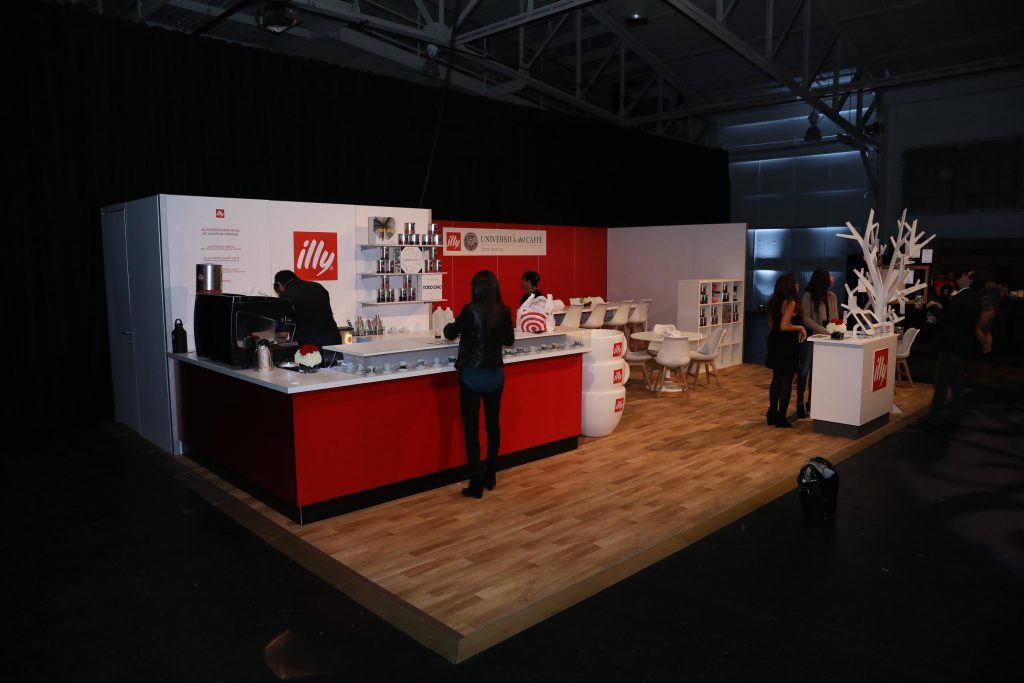Planning a successful corporate event requires careful decision-making and attention to detail. One key decision is choosing a venue. For many corporate events, a hotel is a great venue choice. But once you’ve found the ideal hotel venue, how do you go about negotiating a deal that meets all your event needs?
Why a Hotel Could Be Perfect for Your Corporate Event
Of all the elements involved in planning a corporate event, your choice of event venue is one of the most important, as it impacts on virtually every element of the event. Choosing the right venue is of utmost importance.
There are plenty of alternatives to the hotel, including conference centers and business centers, sports clubs, academic spaces, and even galleries and museums. In most cases, however, a hotel is the perfect choice for any kind of corporate event. Why?
- When your event is out of town—or is hosting out-of-town guests—choosing a hotel covers both your event venue and guest accommodations.
- Choosing a hotel tends to make planning easier, as most provide amenities and services that your event will need. Since they’re already on-site and operational, it both makes your hotel event planning easier and ensures attendees enjoy great service.
- Hotels are usually conveniently located with access to multiple kinds of transport. This means it’s easier for attendees to travel to the venue and easier for them to get around the city once they’re there.
- Many hotels employ an event coordinator, who serves as your point of contact as you plan the event. Put them in touch with your corporate event planner, and you don’t have to worry about dealing with multiple vendors and service providers. From Wi-Fi to catering, it’s all taken care of for you.
- The hotel concierge may be able to help with plans for any off-site activities you have in mind. If the hotel has relationships with local attractions and activity facilities, you may be able to get discounts, perks, or other preferential benefits.
- Picking a hotel means plenty of choice in terms of location, size, and city. Whether you’re looking for an exclusive boutique hotel for a small executive event or a big chain hotel for a large conference or meeting, there are hotels all over the country that will meet your needs.
7 Steps to the Perfect Venue
Follow These Steps to Plan a Successful Hotel Event
1. Preliminary Planning
The first few steps of hotel event planning will be similar to the steps you’d take for planning any kind of corporate event. Start the planning process well in advance—from several weeks to several months, depending on the size and nature of the event—by picking date, time, and location, and estimating your total number of attendees. Other steps to take include:
- Establish a budget and map out expenses.
- Develop an agenda and content schedule.
- Create a list of preferred speakers and other special guests.
- Decide on “must have” hotel services and amenities, as well as the ideal venue size. For instance, if you need on-site catering or special room facilities, establish this in advance so you don’t waste time looking at hotels that don’t fit the bill.
Event Planning Timeline Template
2. Researching Hotels
With the preliminary steps completed, the next stage is finding a suitable hotel venue. The venue search may be time-consuming, but having your budget prepared helps simplify this process. Knowing how much you have to spend means you can eliminate any hotels outside your price range.
For options in your chosen location and price range, it’s typically easiest to first check hotel websites. Many hotels, especially large chain hotels, include details of event-oriented services and facilities on their websites. If it’s important that your hotel is located in a particular part of the city, or is within walking distance to any particular landmark or attraction, you can also confirm this by checking the website for the hotel’s address.
For those that make the cut, you can then contact prospective hotels to confirm they have the services and amenities you need. You’ll also need to confirm that they have a room block that covers your estimated attendee and guest list. For large chains with hotel meeting facilities, you can often make a request for proposal (RFP) via the hotel website; for others, it may require a phone call or email to get the process started.
3. Evaluating Proposals
Once you start receiving RFP responses, you’ll have to evaluate them to determine which are the best options. One way to do this is to list out your requirements and your “nice-to-haves” on a spreadsheet. Then you can fill in information as you receive proposals from hotels. This gives you a way of comparing information at a glance, so you can determine which hotels should make your shortlist for negotiation.

4. Negotiation
Once you start negotiating with hotels, you’ll need to do a couple important things:
- Confirm they’re willing and able to meet your needs
- Negotiate a price for venue, services, and accommodation
There are a number of approaches to take in order to negotiate the best possible price. Don’t limit yourself to just negotiating room rates—there’s usually a lot more wiggle-room than you think, on everything from food and beverages to meeting spaces.
Estimate your value. What’s the total estimated value of your meeting? Estimate your total spend for accommodation, meeting rooms, food and beverages, on-site restaurants and bars, and any other hotel costs. Will your guests be visiting off-site locations? They’ll be bringing in revenue for local businesses too.
Compare accommodation costs. Check the quoted per-room cost against online hotel room aggregators. This can help you determine if you’re getting a good deal. Make sure to check on different days of the week—many hotels charge based on their average occupancy rate, which differs from day to day.
- In the hotel industry, hotels typically provide 1 free room for every 50 booked as a block. If you’re bringing enough value to the hotel, you may be able to book a better comp rate.
- When you agree on a room block, you agree to sell a certain number of rooms to your event guests, by an agreed-on date. Or your contract terms may state that you must release any unsold rooms on a specified date prior to the event. You can try negotiating more favorable terms here, if you’re confident you’ll use the entire block. However, if you’re unable to sell all the rooms, you may be liable for an attrition penalty.
Food & beverages. Making good choices here can save a little money and improve the event experience too.
- Send your attendees a poll about food preferences and dietary restrictions. This information can help you negotiate a menu that pleases as many people as possible and ensures your food budget doesn’t go to waste.
- Some kinds of food presentation cost more than others. Make sure to check on the cost of plated entrees versus buffet menus, and butler-style appetizers versus food stations.
- Try to wait till the last possible minute to finalize your choices. Venues may work to get you to commit to high minimum numbers early on in the negotiations. You can try to counter this with an offer of a tentative number 30 days out, with the option to change it close to the event.
Meeting Rooms. Some venues—especially larger hotels—may waive the fee for meeting space in some circumstances. For instance, if your accommodation block and/or catering spend is large enough, they may be willing to waive this fee. However, this is something you need to actively ask about, as few hotels will state this on their RFP.
If this isn’t possible, you may be able to reduce room fees if meeting rooms don’t need to be reconfigured multiple times during the event. Each reconfiguration requires hotel staff for setup, which adds to room fees. If you only need to set up once at the start, this can reduce your room fee.
13 Corporate Conference Floor Plans
Technology. Some hotels have a policy that requires you use their audiovisual and catering vendors, or pay a penalty for using an outside vendor. However, some vendors simply imply that you must use their vendors but don’t actually impose any kind of penalty if you choose not to. Clarify exactly where the hotel stands on this issue, as commissions paid to hotel-affiliated vendors can substantially increase your bill.
One concession many hotels are willing to make is to provide free Wi-Fi for event guests. You may not be able to get free service across the entire hotel, but guest rooms and event spaces could be possible.
5. Final Details
Once you’ve reached an agreement with the hotel, review the contract, and make sure it includes any amendments or additions. If your company has in-house counsel, hand it over so they can go over it for you. Once you’re confident you have the deal you want, go ahead and sign.
Red Flags to Watch for in Hotel Meeting Planning
What should you avoid when planning a hotel corporate event? There are few major red flags, especially if you’re working with larger hotel chains. They’re experienced when it comes to events, and you can generally rely on their expertise. Even so, there are a few things to watch out for.
Most importantly, make sure that you’re thoroughly familiar with the cancelation policy and the accommodation policy. Since hotels may impose steep penalties if you don’t sell your entire room block, it’s vital that you estimate your needs as accurately as possible and that you negotiate as low an attrition penalty as possible.
If using an outside catering or AV vendor is important to you, avoid any hotels that impose stiff penalties for not using on-site vendors. If you’re not sure, ask, as not all hotels are forthcoming with this information.

Choosing the Right Venue Is a Vital Part of Hotel Event Planning, and You Don’t Have to Go It Alone
For any kind of corporate event, from executive retreats to sales conferences, choosing the right venue is a key part of event success. Evaluating your choices thoroughly—and negotiating carefully—can get you the right venue at the right price. But corporate event planning can be hugely time-consuming, on top of the day-to-day business of running a business. The ProGlobalEvents team is ready to help you find the perfect event venue and negotiate the right terms to help your event be profitable. Contact us today to learn all the ways we can help you plan a successful corporate event.









